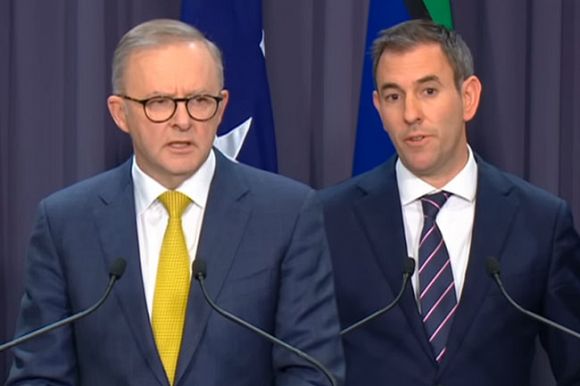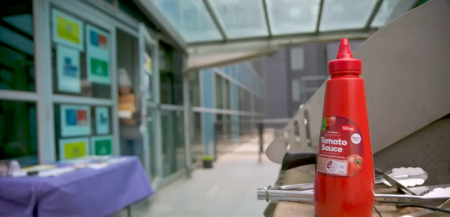The Albanese Government’s "Secure Jobs, Better Pay" industrial relations bill passed the House of Representatives last Thursday and now heads to the Senate.
The bill was introduced to Parliament for its first reading on 27 October. In Parliament, speaking during the second reading, Liberal MP Paul Fletcher and Independent MP Kylea Tink both complained they hadn’t had enough time to consider the bill or the amendments.
Two other Independent crossbench MPs, Kate Chaney and Allegra Spender, argued against the "veto" provision for third parties at the bargaining table. Minister Tony Burke reminded the independents before the House voted, as recorded on page 37 of the Hansard, “I know it’s been in the media as though there’s only a veto on one side. The veto is also on the employer side”.
The usual handful of "employer groups" have been doing the media rounds predicting doom and gloom, nationwide strikes and talking up the evils of multi-employer bargaining.
The same faces we’ve seen for years, saying a different version of exactly the same thing, restating their aversion to industrial relations reform, unchanged in decades.
You know the usual suspects whom journalists must have on speed dial: Innes Willox, AiG (Australian Industry Group); Jennifer Westacott AO, BCA (Business Council of Australia); Steve Knott AM, ACCI (Australian Chamber of Commerce & Industry); Denita Wawn, MBA (Master Builders Association); Tony Mahar, NFF (National Farmers Federation).
Without fail, if there’s a story about industrial relations in the news, you can be sure one or all of these people will be giving interviews on every channel, podcast, radio, and print media to say how strongly they object and how it will devastate the businesses they represent.
This week the ACCI even threatened to launch a multi-million dollar national advertising campaign against the bill. The irony was not lost on Prime Minister Anthony Albanese, who responded to Steve Knott’s threat with “I do note that there’s an issue of credibility if companies are saying we’ve got a whole lot of money to throw at a campaign but we don’t have any money to pay workers better”.
Tony Mahar complained he hadn’t had enough time to consider the bill despite the NFF, BCA, ACCI, MBA and AiG all being thanked by the Minister for their prior consultations on the bill.
Denita Wawn complained to Patricia Karvelas on RN Breakfast that she hadn’t had enough time to read the 239-page bill, claiming she was given only “6 hours, a few days before it was introduced, to read it…”, yet she was able to appear on Credlin the very same evening of the first reading to reject the bill in its entirety. She has maintained that position in many interviews ever since.
Innes Willox penned an op-ed for The Australian Financial Review published, with exquisite timing, on the exact same day as the House of Representatives passed the bill.
Jennifer Westacott forgot the short-lived kumbaya of the jobs summit and her “Kodak moment of consensus with ACTU boss Sally McManus” and also complained about the "veto" powers.
These same five voices are fighting against workers’ rights and better pay once again. These same five voices are the media’s go-to for a quote. Three of these voices (Westacott, Knott and Willox) also sit on the Ministerial Advisory Council on Skilled Migration, set up by the Home Affairs Department of the former Government.
A tiny few voices that have grown very accustomed to influencing government over the past nine years and who seem to be struggling to accept the Albanese Government won a mandate for industrial reform on 21 May.
Not all industry groups agree with the famous five listed above.
The Government’s bill has received support from the Australian Constructors Association (ACA) for the National Construction Industry Forum announced in the Bill. The ACA, in its aptly titled recent report 'Disrupt or Die', claims that 'construction productivity today is lower than it was in 1990' and '…workers are under pressure. They work long hours, suffer high stress levels and are six times more likely to die from suicide than a workplace incident'.
Describing the industry as a “productivity laggard” compared to other industries, the report goes on to the highlight that 'construction contributes seven per cent of GDP and employs almost one in 10 of the working population' and 'improvements to the industry’s productivity performance could save Australia $47 billion annually'.
The ACA offers a refreshing alternative and innovative viewpoint on cultural and industrial reform compared to the five "industry bodies" utilised again and again by the media. ACA understands that 'flexible work practices with reasonable hours/days worked is a necessity in the modern world' and that the Albanese Government’s new bill is heading in the right direction to reform their industry with its National Construction Industry Forum.
Tackling the outdated ways of industry bodies and their spokespeople is probably the greatest hurdle Minister Burke will have in getting the bill through the Senate. The five "industry" bodies will be relentlessly lobbying the Senate crossbench with their concerns over the next few weeks.
Those five tired, stuck-in-the-mud industry voices don’t carry the clout they used to, not in the public sphere nor in the corridors of Parliament. To achieve future results that are different from the past we must listen to different voices, not the same tired old industry naysayers who reject any reform that will shift the power of worker wellbeing from employer to employee.
You can follow Belinda Jones on Twitter @belindajones68.
Related Articles
- Scott Morrison's repent: A letter of apology to Australians
- Digital infrastructure in post-pandemic era should be left to experts, not politicians
- The Government puts business ahead of the environment
- The Reserve Bank has got it wrong: Embrace modern monetary theory
- Universal basic income is the only fair option in COVID-19 crisis
 This work is licensed under a Creative Commons Attribution-NonCommercial-NoDerivs 3.0 Australia License
This work is licensed under a Creative Commons Attribution-NonCommercial-NoDerivs 3.0 Australia License
Support independent journalism Subscribe to IA.














